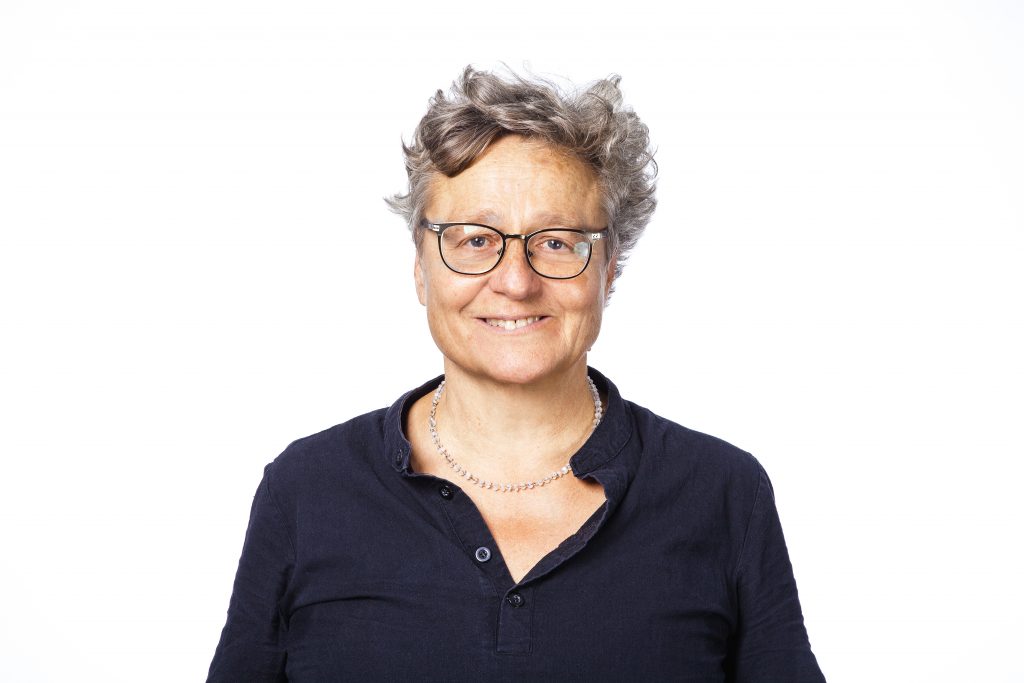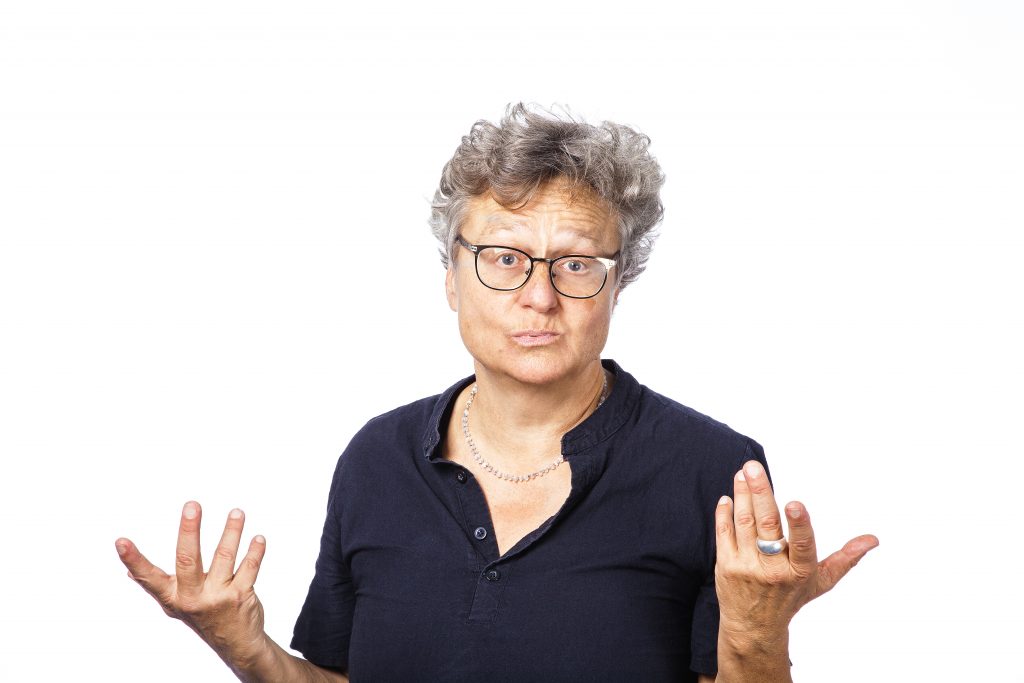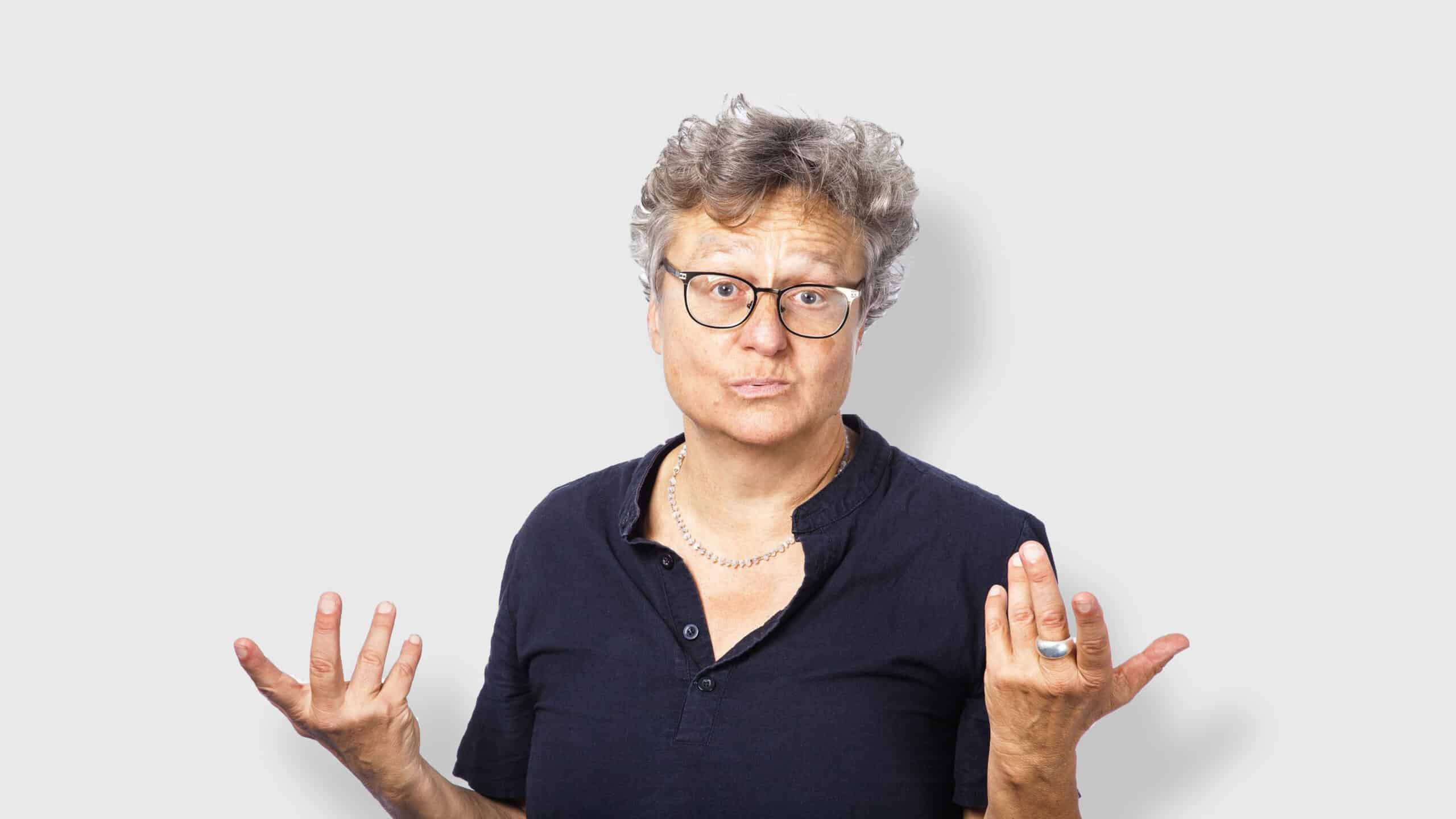Eye contact instead of video tiles
Hedy can no longer see tiles! She has been in too many Zoom conferences over the past six months, too often she could only see her dialogue partners as tiny videos. The Berlin native coaches managers and trains workforces, especially when it comes to health. During the lockdown, she was only able to give her training courses online. "Technically, it worked well," says the 61-year-old. But Hedy is convinced that even the best technology cannot replace personal encounters: "We are social beings and depend on meeting each other in person! Fortunately, things improved again during the summer - but we can't go back to the time before coronavirus any time soon. After corona is before corona!"

The last few months have probably been particularly difficult for many people from the queer community, Hedy surmises. "Many of us live alone. That makes it harder to keep in touch." When hugs are also taboo, it's time to get down to business. "Singles in particular have to see how they can get through this time."
The scene audience fans out
To make matters worse, many meeting places for the queer community were closed and events were cancelled. This hit lesbians even harder than gays, explains Hedy. "We women earn around 20 per cent less than men and spend correspondingly less. That alone makes it harder for women's shops."
Even in the big city of Berlin, the Beguine only a small art bar where - in classic feminist fashion - only women* are allowed. After all, the Begine team was able to bridge the worst of the coronavirus period with donations. However, most women's bars had already given up before the pandemic. Or they changed their concept.

"The spaces for us lesbians have become fewer - and more open," explains Hedy. The "women only" door policy no longer works as it used to. The audience is diversifying. Trans* men and trans* women want in just as much as visitors who don't categorise themselves as either men or women.
"We humans need safe spaces"
At Hedy's birthday party, two of her friends discussed it intensively. One of them is helping to organise a Berlin film festival. The flyers now say "Lesbian Non-Binary Filmfest". The other stumbled over the word "non-binary" and realised: "I'm just a lesbian. Please explain that to me!" Hedy was fascinated: "There were only 16 years between the two of them, but their views were still very different." The hostess could understand both sides. "I can't get my head round a lot of new terms either, because they're just so complex," says Hedy, laughing. "Sometimes I wish I didn't have to research a discourse before I could join in."
Hedy views the change in her familiar community with both joy and melancholy. "The younger generation takes the new opportunities for granted. My generation rather regrets that our spaces are changing so much." Hedy has long campaigned for these open spaces and is currently on the board of the Lesbian ring. The association networks lesbian* groups nationwide. They must and will continue to exist in the future, Hedy emphasises. "We people need safe spaces where we know we belong: That's where I belong!" This could be the partnership, the family of choice - or community centres such as Begine or "Wheel and deed". Many felt safe and "at home" there.

Tough fronts through the community
These retreats of all places are now on the move. "That irritates a lot of people," says Hedy. "A lot of questions arise: What is being taken away from me? And what can I gain?" Through her profession as a coach and therapist, she knows how easily people clash in such transitional phases, especially younger and older people.
Hedy finds the message from #wirfürqueer"We stick together." But sticking together takes strength. As a communications specialist, Hedy wants "a culture of communication in which we listen to each other and get to know different positions - and without immediately doing a 180 when I hear a different view on things." At the moment, Hedy has the impression that hard lines are running through the community. "That's what drives me! The question is: how can we manage to listen to each other better?"
There is no way around it: If we want to get through the tough times together, we have to be able to talk to each other. Hedy is certain of this - and is ready for constructive debate. "If others want to discuss this with me in public, I'm happy to do so! I'm keen to play my part in keeping our community together!"
The queer scene is also affected by the Coronavirus pandemic affected, whether through possible loneliness or financial difficulties. Do you want to help or are you looking for help? #WeForQueer lists projects that offer help or are looking for support themselves. Click through and find a suitable aid or solidarity campaign!










